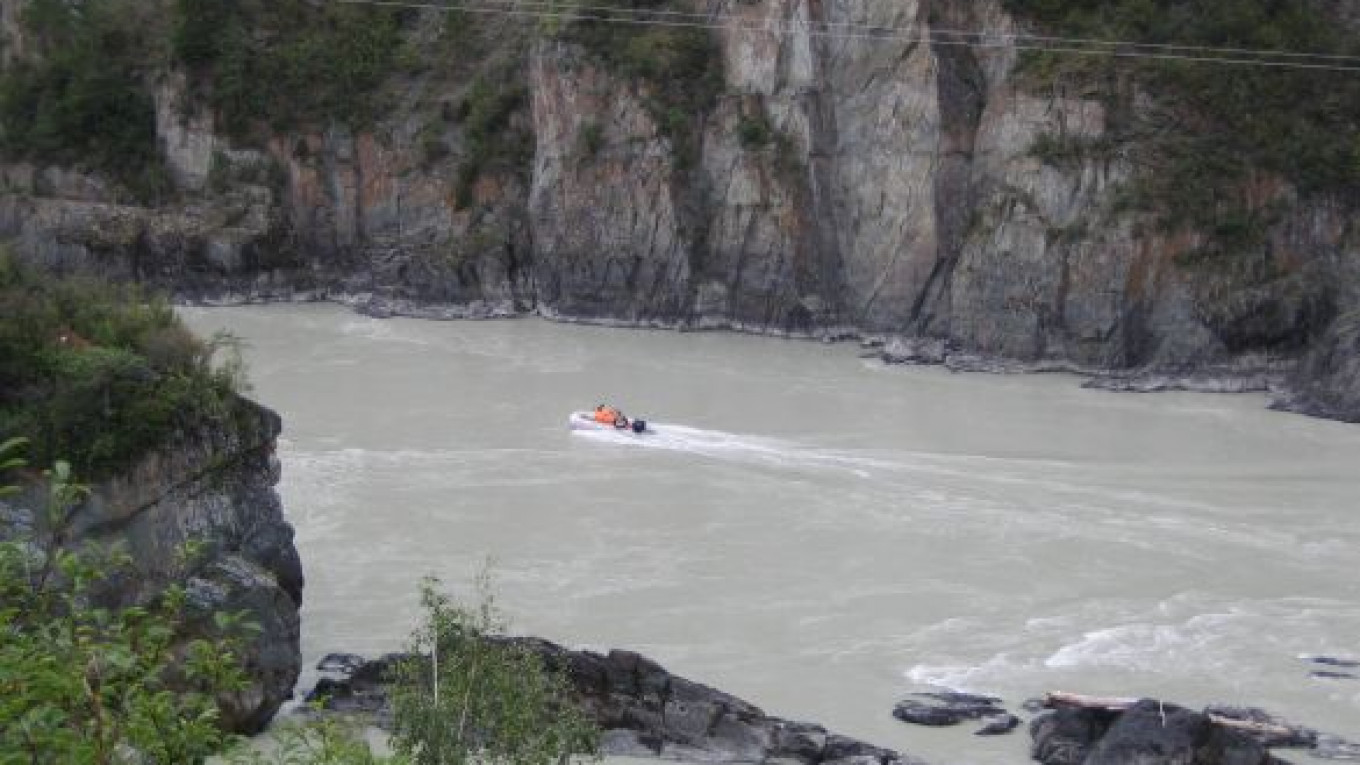BIRYUZOVAYA KATUN, Altai Republic — Foreign Minister Sergei Lavrov loves rafting in this Siberian area, which borders Mongolia and China, a vacation that he reportedly takes every year.
He doesn't apparently spread the word about the place among many foreigners ?€” or maybe they don't like the challenging sport. The word Altai seems to ring hollow to rafters and eco-tourists outside Russia.
Special Economic Zones, the state company that develops industrial, research and tourism activity in designated areas, is working to change that. It is investing in the construction of two tourist zones in the Altai Mountains, which, in addition to Siberian holiday-makers, could draw a portion of the foreigners who travel to Russia to have fun.
"We are hoping that the number of foreign tourists here will increase," Special Economic Zones chief Oleg Kostin told reporters Monday.
On top of little awareness about the region, a substantial impediment to many tourists is the high price of taking a plane there, Kostin conceded. A four-hour flight from Moscow to Gorno-Altaisk, the city that's the closest to the resorts, costs about 32,000 rubles ($1,000) for the round trip.
The brand new Gorno-Altaisk airport began accepting flights in June and didn't look busy when an S7 Airlines Airbus jet landed there recently. In fact, it was the only plane on the tarmac.
But in a sign of the area's tourist readiness, the airport has a rent-a-car stand. Its offers start with a Hyundai hatchback for 2,000 rubles a day and run all the way to a mid-sized Hyundai ix 55 crossover for 7,000 rubles a day.
In addition to rafting, tourists come to the Altai Mountains for some less extreme outdoor activity, such as horse-riding and trekking through the wilderness, which is rich in medicinal herbs.
Small tourist businesses in the Altai Republic and neighboring Altai region have plenty of rooms and houses to rent out as you drive on the road along one of the area's main waterways, the Katun River. What Special Economic Zones wants to do is create higher-class accommodation and service, Kostin said.
"We want … tourists to feel safe and have a greater variety of services at hand," he said.
The zone that is closer to the airport, Altaiskaya Dolina in the Altai region, will feature Siberia's biggest artificial lake, he said. The lake, scheduled to open next June, will be 1.5 kilometers long and up to 500 meters wide.
The idea is to provide a body of water that's warm enough for a swim in contrast to the mountain rivers, like the Katun, whose glacier-fed waters remain chilly even at the height of summer.
While Altaiskaya Dolina, or Altai Valley, is just a big construction site at this time, Biryuzovaya Katun, the other zone, already has resident companies that offer hotel rooms. The rooms ?€” 3,000 rubles for a double ?€” are in rustic two-story log cabins equipped with amenities.
Biryuzovaya Katun, or Turquoise Katun, named after the color of the river's water when it clears up in October, is located in the Altai republic. It already features a functioning artificial pond.
Another prominent guest of the land was then-Prime Minister Vladimir Putin, who visited in 2009 for a short summer break. As for foreign tourists, Dmitry Shevtsov, a local cave tours manager, said he had encountered only a few Germans and Chinese.
Nikolai Kakora, chief of the Intourist branch that provides Russia tours, shared Kostin's concerns about the exorbitant airfare.
"The high cost of traveling kills everything," he said.
Another reason why Altai is not popular on the tourist market is that it has not developed a brand of its own, Kakora said.
"Foreigners want to know about our culture and history," he said. "Altai is about nature. They have a lot of it in their countries."
About 90 percent of foreigners choose Moscow and St. Petersburg to visit in the country, he said.
Altai enjoys far less recognition than Lake Baikal, where many other foreign tourists opt to go, he said. A Marriott hotel in Irkutsk, a city near the lake, teemed with Chinese and European tourists when a reporter stayed there in July.
Danish tourist company Tumlare is not offering tours to Altai, its Moscow office chief Yelena Rusova said.
"We can't offer them because we know so little about this product," she said.
The company's subsidiaries include Japan Travel Bureau, and it also sells tours in Italy, Taiwan, Thailand and India.
A Message from The Moscow Times:
Dear readers,
We are facing unprecedented challenges. Russia's Prosecutor General's Office has designated The Moscow Times as an "undesirable" organization, criminalizing our work and putting our staff at risk of prosecution. This follows our earlier unjust labeling as a "foreign agent."
These actions are direct attempts to silence independent journalism in Russia. The authorities claim our work "discredits the decisions of the Russian leadership." We see things differently: we strive to provide accurate, unbiased reporting on Russia.
We, the journalists of The Moscow Times, refuse to be silenced. But to continue our work, we need your help.
Your support, no matter how small, makes a world of difference. If you can, please support us monthly starting from just $2. It's quick to set up, and every contribution makes a significant impact.
By supporting The Moscow Times, you're defending open, independent journalism in the face of repression. Thank you for standing with us.
Remind me later.


